- Home
- Peter D Wilson
The Liar
The Liar Read online
THE LIAR
A short story by
Peter D. Wilson
Copyright Peter D. Wilson 2011
Thank you for downloading this e-book. Although free, it remains the copyrighted property of the author, and in part or whole may not be reproduced, copied and distributed for any commercial or non-commercial purpose without his permission.
Thank you for your support.
For permission to reproduce material from this e-book,
please apply stating extent and purpose of the request;
contact details may be found under "About the author".
Disclaimer
This is a work of fiction, and any resemblance therein to persons, events or situations in past or present reality is coincidental.
CONTENTS
Story
About the author
THE LIAR
I might, like many another author capitalising on his memories, preface this offering with a disclaimer, pointing out that it is a work of fiction and that nothing in it should be taken as referring to real events, places or personages. But if I go further to say that nothing herein is true, does that not apply also to the disclaimer? What then is to be believed? What, as Pontius Pilate famously asked, is truth?
Put it this way. I may aspire to tell a tale that is completely fictional. But mankind has been around for perhaps a couple of million years, civilisation of some kind for ten or twenty thousand, recognisably modern societies for a few hundred, and there’s no way for any but the most fantastic elements of a story to be without factual precedent some time, somewhere, somehow. Even the most elaborate fantasies probably have recognisable antecedents. After all, there are supposed to be no more than about half a dozen basic plot lines, but don’t expect me to list them.
Then again, any one of those basic plots can be recited in a few seconds, whereas I hope to hold attention for at least ten minutes, with luck perhaps for an hour, or if inspiration really runs away with me beyond all experience or likelihood, for perhaps a day or two. To do that I must flesh out the bare bones of the story with the organs and muscle to drive the narrative, provide a substantial skin of context to hold together the various components, and to avoid being unutterably prosaic, clothe it with tasteful adornment. The more I add, the more likely - indeed, the more nearly certain - it becomes that conscious or unwitting recollections of past reality will be pressed into service.
So when I say that nothing hereafter reflects actual fact, don’t believe a word of it.
Martin Graham was by far the greatest liar I ever knew. He lied habitually, not generally to gain advantage, avoid blame or even save embarrassment to other people, although any of these motives might apply to some extent according to circumstance. In fact his lying seemed not so much a habit as a matter of principle: that the truth was too precious a commodity to be wantonly squandered. He took to an extreme the strictures of Kipling’s Kim on the naivety of a man who “told the truth to strangers.”
This involved him in a good deal of mental tension. There is no point in a lie that cannot be believed, and sustained credibility demands more than superficial consistency. To maintain a life of complete falsehood that fits together even within itself, let alone avoiding obvious clashes with known reality, is very much more difficult than telling the truth - fortunately for criminal investigators and writers of farce. It also makes any kind of social life impossible, since no appointment can be kept, no promise fulfilled, no interaction with the mechanisms of state or commerce taken to fruition.
Hence came the greatest lie of all. Martin was not the name given by his parents, nor were they called Graham. Rather like Jekyll and Hyde, though without the gothic overtones, he had a completely genuine name and persona in which he lived a normal life: normal, that is, except for concealing his dual identity and in other respects maintaining an almost obsessive truthfulness. It was as though he had shed all tendencies towards mendacity on to his alter ego. Martin, as a flight of fancy, occupied only a small and manageable portion of his existence, and was kept completely distinct from the rest. He would have been Oscar Wilde’s ideal Bunburyist.
I knew none of this at the time, of course. Our first meeting was at a hotel some hundred and twenty miles away across country from my home, too far to be sure of arriving there on time for the start of a conference if I were to set off at a tolerable hour that morning. Other participants had to travel further, and we all agreed to stay there the night before and have a fairly late dinner together. We tried that evening to avoid talking shop beyond the bare essentials, but one point of procedure needed to be settled and after the meal Huw Evans went out to his car to get some relevant papers while the rest of us adjourned to the bar lounge. The parking area was poorly lit, but through the window I saw him exchange a few words with a stranger.
On his return he commented on having bumped into a former pupil of his old school, who purportedly remembered following him a couple of years behind. The recollection was one-sided but there was nothing unusual about that, since in any school interest in personalities tends to be directed upwards rather than downwards, so no one was inclined to question the claim. As a natural courtesy Huw had invited the man to join our party. Some of us had uneasy visions of the evening descending into an Old Boys’ duologue, but we needn’t have worried. Martin proved to have a fund of stories ranging from the plausible to the outrageous that kept us entertained for rather longer than we really should have continued, until someone remembered that the barman lived out and ought to be allowed home.
The next morning not all the party turned up for breakfast, and there were some bleary eyes among those who did, but Martin was disconcertingly perky. He made the round of the more fully awakened among us, wishing farewell and a good meeting, then disappeared. There was no reason to expect any occasion for coming across him again. I suddenly realised that owing to the distraction we still hadn’t settled the matter for which Huw had brought in the papers, and suggested to him that those of us who were more or less capable of it had better do so promptly while the rest nursed their hangovers, in the hope that they would agree afterwards. It was the sort of question for which any reasonable answer is better than continuing to argue, and when ours was put to the less abstemious it was accepted with little demur.
At that time my path crossed Huw’s two or three times a year, and some months later he told me that he had been dragooned into acting as a trustee for his school, and as an unwelcome consequence was landed with a load of raffle tickets to sell for the development fund. A generous prize (a quite respectable car, even by his high standards) had been donated and the tickets were correspondingly expensive, so he would understand if I didn’t want to subscribe, but I had been sounding off about the need to support good educational establishments and felt unable to refuse. He went on to say that the gift had been anonymous, but the school secretary had done a bit of detective work and traced it back to - guess who? I had no idea. Apparently it was Martin Graham.
There was some mystery about this. The records for the year in question held no mention of his having been admitted to the school, but had been damaged in a fire and might conceivably be incomplete. Had that been all, such an explanation would have been readily accepted, but more strangely, none of the supposed contemporaries who could be contacted had any memory of the name. However, everything connected with the purchase and delivery of the prize appeared to be completely in order; he was not angling for any benefit from his supposed attendance (indeed, quite the reverse); no one could think of any other motive for an imposture, and the situation remained baffling.
It also put the school authorities into something of a quandary. A prize of that nature and value could hardly be handed over like a cake at the church fair; the draw ought to be the cl
imax of some substantial ceremony on the school’s Open Day, with visiting dignitaries and the local Press if not national representatives invited. The obvious person to present the prize would be the donor himself, but for his evident wish to remain unidentified. At that stage, of course, none of us realised that he was using a pseudonym. In the end it was a toss-up between the headmaster and the chairman of the governors, and the Head won - or lost, according to how you regard it. Whichever way, he landed the task. Huw suspected some surreptitious manipulation, as the chairman was a notoriously long-winded speaker inclined to pomposity.
Although there was no need for me to attend for the draw as the winner would be notified in any case, one of my more affluent relatives was interested in the school for his own reasons and asked me to take a look as he was otherwise committed for that day; in retrospect I’m not at all sure that any of my observations were ever of much use to him, but that’s another matter. Since I was there, I took the opportunity to take a good look at the prize, and found myself talking

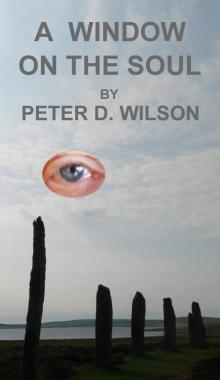 A Window on the Soul
A Window on the Soul_preview.jpg) Towards Sunset (third edition)
Towards Sunset (third edition)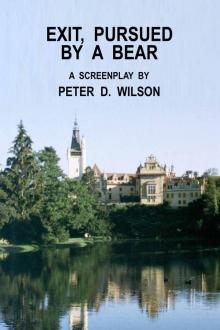 Exit, pursued by a bear
Exit, pursued by a bear Pebbles from a Northern Shore
Pebbles from a Northern Shore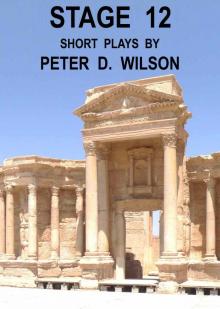 Stage 12
Stage 12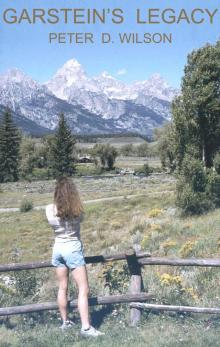 Garstein's Legacy
Garstein's Legacy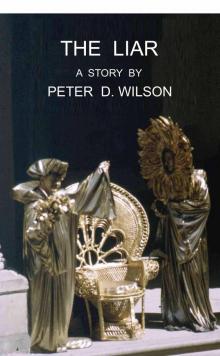 The Liar
The Liar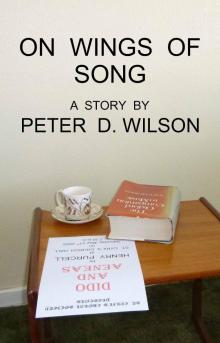 On Wings of Song
On Wings of Song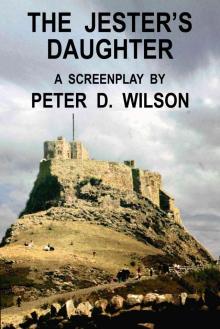 The Jester's Daughter
The Jester's Daughter Skiddlethorpe and other stories
Skiddlethorpe and other stories